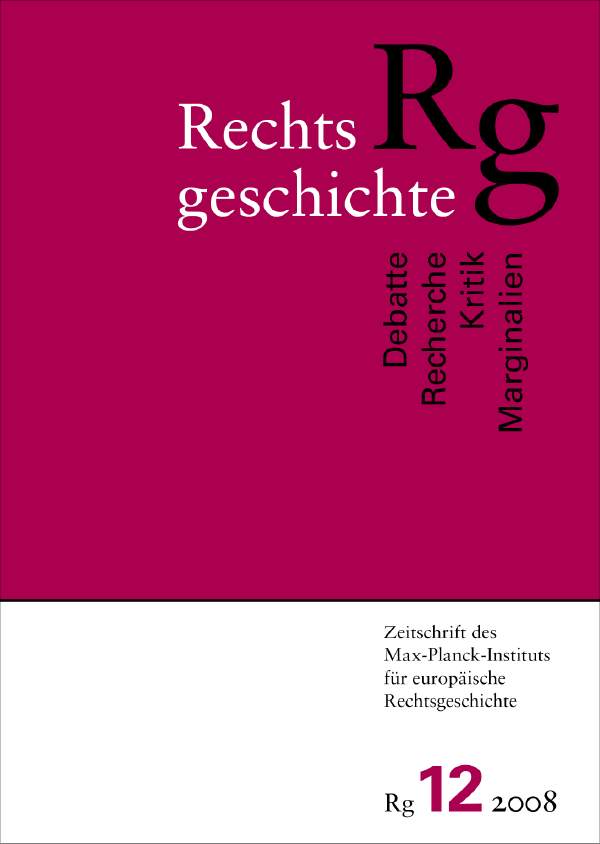Un dibattito per l’egemonia
La perizia medico legale nel processo penale italiano di fine Ottocento
DOI:
https://doi.org/10.12946/rg12/139-173Abstract
The Italian science of criminal law in the second half of the nineteenth century is closely linked with politics and with the construction of the new Italian liberal State. Criminal science is the privileged meeting point of political theory and the new social sciences in general. This theme is responsible for the orientation of a great part of historiography, reflecting a dichotomy between two Italian juridical schools: the Scuola liberale (Carrara, Lucchini) and the Scuola positiva (Ferri, Lombroso). Among the new social sciences, the »positive school« made use of psychiatry, statistics and criminal anthropology in order to discuss the approach to the criminal problem, constructing the figure of the »delinquent« to redefine the problems of liability and of the rationale of punishment.
In this framework the paper expounds the role of medical examinations in the criminal trial through the analyses of the leading criminal reviews and the legislation of the late nineteenth century. The debate, which started with the reform of the regulation of medical examinations, allows us to reconsider the dispute between doctors and jurists for supremacy over deviance and crime, emphasizing the transformation of the judge into a doctor and of the doctor into a judge.
Downloads
Veröffentlicht
Zitationsvorschlag
Ausgabe
Rubrik
Lizenz
Copyright (c) 2008 Autor/in

Dieses Werk steht unter einer Creative Commons Namensnennung - Nicht-kommerziell - Keine Bearbeitung 3.0 International -Lizenz.





